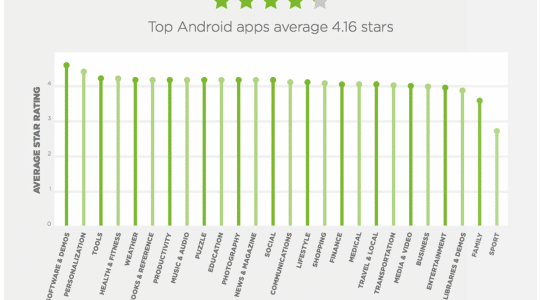Back in mid-February Flurry announced that China overtook the US to become the world’s top smart device market. Earlier today TechCrunch deemed that China is finally a lucrative market for app makers. It’s no secret that the market in China has the potential to be huge, but thus far monetization within their market was close to non-existent, especially for app developers over here in the US. Why, you ask? Piracy, fraud, an overabundance of Android stores, and unreliable payment processing made it difficult for non-Chinese developers to actually monetize their apps. But that has been changing of late; Lei Zhang, the US general manager for CocoaChina (they’re a Beijing-based mobile game developer and publisher), projects “sometime in 2013 that there will be a $10 to $15 million-per-month game in China.” These are numbers that are too hard for the US market to ignore, and it’s about time we started tapping into it.
The question to ask is how does one launch and market an app in China? It isn’t a simple project to undertake, but we believe it’s one worth trying out. Keep in mind that releasing your app in the Chinese market doesn’t have to mean trying for the top 100 apps list; instead start out small and try testing the waters. If your app doesn’t require text and/or reading in order for it to be enjoyed, you can simply translate your description to try and engage users who don’t speak English. See if you can get any fish to bite, then go from there. Google Translate is one place to go for this, but it isn’t going to be your best approach. Chances are if all you do is copy–paste–hit the translate button–copy–paste, you’re going to confuse your audience and they won’t understand what it is you want them to do with the app. Reach out to your networks to find someone fluent in the language, or even reach out to your local university for students that are fluent; chances are they’ll jump at the chance to earn a case of beer to do it for you. And while you’re working on the description, don’t forget that you’ll need to take a look at your app title and search keywords.
Next you’ll want to make sure that your app doesn’t conflict with any of the censorship issues that are present in China; that’s probably the quickest way to ensure your app won’t be approved (let alone be a success) over there. Also consider that it isn’t easy for Chinese users to access sites like Facebook, Twitter, YouTube etc, so you may want to consider disabling those features on your app before releasing it overseas. ChinaEClaw provided by the TransAsia Lawyers can be a great resource for the censorship regulations you should be aware of. I will warn you that it’s not the most exciting read in the world, but there is a lot of good information there.
The next step you’ll want to take is to submit your app into their market. Kevin Xi, a Software Architecture Designer and Developer based in Shanghai, recommends starting off with China Mobile. If you’re an individual developer, you only need to provide them with some very basic information and your email address. The app review and approval system is pretty simple, and he says you should have your app ready to sell and download within a matter of minutes. Now you can sit back and see what happens; monitor your downloads statistics closely from the start. If you notice a spike in downloads that excites you, then you’ll want to think about localizing the app itself. In case you aren’t familiar with the term, localizing means taking it much further than simple translation and adapting your ENTIRE app to meet the language and cultural needs and expectations of the country you’re targeting. If localization is something you want to seriously peruse, I strongly encourage you to find a company or service to help you with this process, unless you’re already familiar with the language, culture, laws and regulations of the country (which I will assume most of you aren’t). After all if there really IS that much money to be made, you’ll want to do it the right way, right?
Have you published an app internationally, whether in China or another non-native English speaking country? What experiences did you have with it, and what advice can you give to others who wish to do the same?
Author
Becky is the Senior Content Marketing Manager at TUNE. Before TUNE, she handled content strategy and marketing communications at several tech startups in the Bay Area. Becky received her bachelor's degree in English from Wake Forest University. After a decade in San Francisco and Seattle, she has returned home to Charleston, SC, where you can find her strolling through Hampton Park with her pup and enjoying the simple things in life.




Leave a Reply
You must be logged in to post a comment.